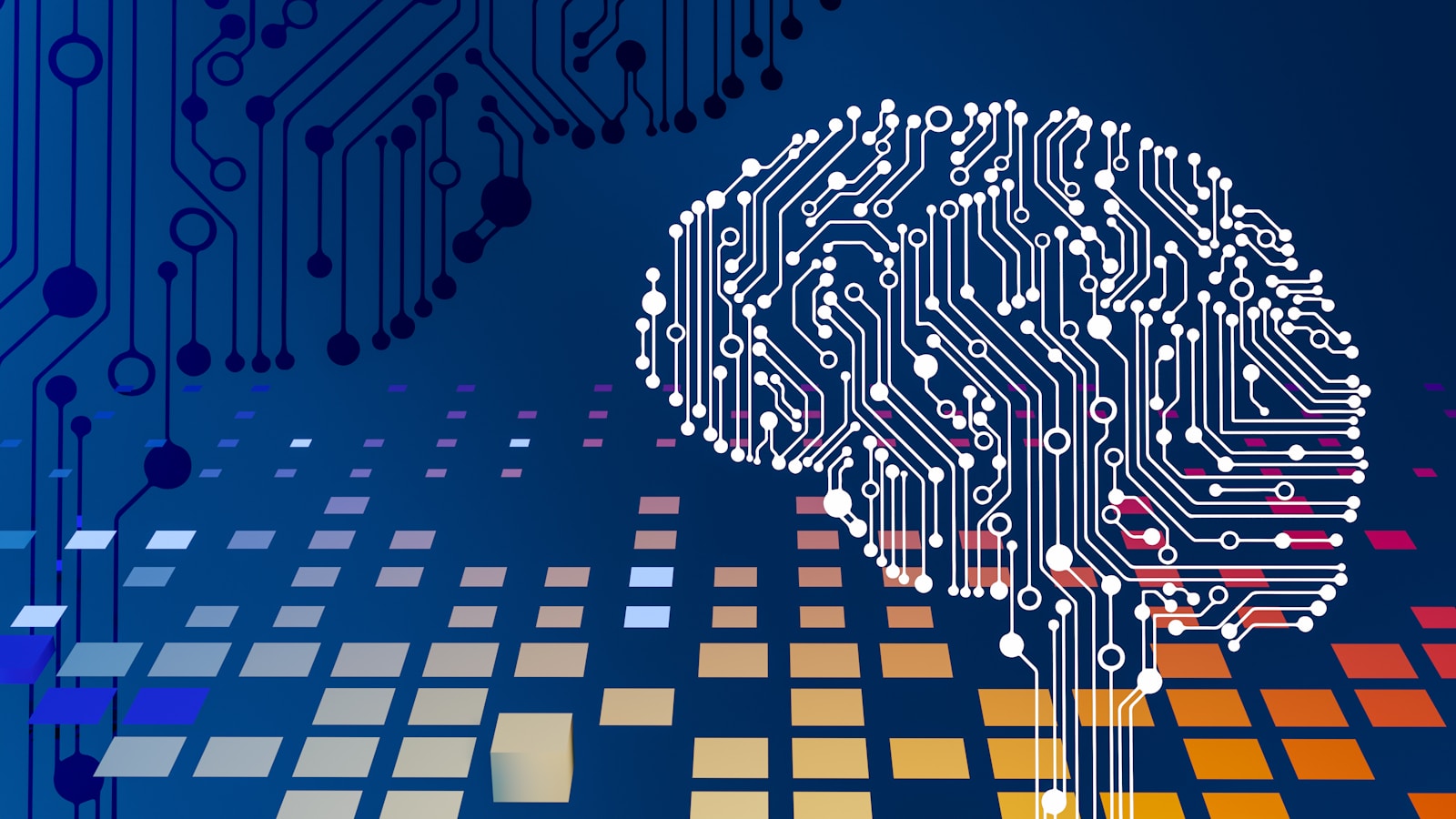With the rapid advancements in technology, the threat landscape in cybersecurity is constantly evolving, posing significant challenges to organizations worldwide.
Cyber attackers are becoming increasingly sophisticated, employing various tactics such as ransomware, phishing, and supply chain attacks to target sensitive data and disrupt operations. As more businesses shift towards digital transformation, the attack surface expands, making it easier for threat actors to exploit vulnerabilities and infiltrate networks.
One of the key factors contributing to the growing threat landscape is the rise of interconnected devices in the Internet of Things (IoT) ecosystem. These devices, while offering convenience and efficiency, also present security risks as they can serve as entry points for cyber attacks. Moreover, the widespread adoption of cloud computing and mobile technology further complicates the security landscape, making it essential for organizations to implement robust cybersecurity measures to protect their assets and data from potential breaches.
The Evolution of Artificial Intelligence in Cyber Defense
In recent years, the evolution of artificial intelligence (AI) has significantly impacted the field of cybersecurity. AI technologies have revolutionized the way organizations defend against cyber threats, offering advanced capabilities for threat detection, analysis, and response. These intelligent systems can swiftly analyze vast amounts of data to identify suspicious patterns and potential security breaches, enabling security teams to proactively address vulnerabilities before they are exploited.
One of the key advancements in AI for cyber defense is the integration of machine learning algorithms. These algorithms enable AI systems to continuously learn from new data and adapt their threat detection techniques accordingly. By leveraging machine learning models, cybersecurity professionals can enhance their ability to detect emerging threats and predict future attack patterns, ultimately strengthening their defense mechanisms against evolving cyber threats.
Benefits of Utilizing AI in Cybersecurity
AI offers numerous benefits for enhancing cybersecurity operations. One of the key advantages is its ability to swiftly analyze vast amounts of data in real-time, enabling organizations to detect and respond to threats more efficiently. This rapid processing power allows AI to identify patterns and anomalies that may go unnoticed by human analysts, thereby strengthening the overall security posture of an organization.
Additionally, AI can automate routine tasks such as monitoring networks, analyzing logs, and patching vulnerabilities, freeing up cybersecurity professionals to focus on more strategic and high-impact activities. By streamlining these manual processes, AI can help improve operational efficiency and enable teams to respond proactively to emerging threats, reducing the overall risk of cyber attacks.
Challenges in Implementing AI in Cyber Defense Strategies
Implementing artificial intelligence (AI) in cyber defense strategies presents a myriad of challenges for organizations looking to bolster their security posture. One of the key hurdles is the lack of skilled professionals who possess the expertise to develop and deploy AI systems effectively. The complex nature of AI technology often requires specialized knowledge that may be scarce in the cybersecurity workforce, leading to difficulties in utilizing AI to its full potential in defending against evolving threats.
Moreover, the sheer volume of data that AI systems need to analyze in real-time poses a significant challenge for many organizations. Processing large datasets efficiently requires robust infrastructure and resources, which can strain budgets and slow down implementation timelines. Ensuring that AI algorithms are accurate and reliable in identifying threats also requires continuous monitoring and fine-tuning, adding another layer of complexity to the already intricate process of integrating AI into cyber defense strategies.
Enhancing Threat Detection and Response with AI
In the realm of cybersecurity, the utilization of Artificial Intelligence (AI) has revolutionized the way organizations approach threat detection and response. AI-powered systems possess the ability to analyze vast amounts of data at speeds unattainable by human analysts. By leveraging machine learning algorithms, these systems can detect patterns indicative of potential threats, aiding in the swift identification of malicious activities within networks.
Moreover, AI enhances response capabilities by automating certain aspects of incident response. Through AI-powered tools, organizations can streamline the process of isolating and mitigating security breaches, minimizing the impact of cyberattacks. This proactive approach to threat detection and response not only bolsters cybersecurity defenses but also provides organizations with a competitive advantage in the ever-evolving landscape of cyber threats.

The Role of Machine Learning in Cyber Defense
Machine learning plays a vital role in strengthening cyber defense mechanisms by enabling systems to automatically learn and improve from experience. Through the analysis of patterns and anomalies in vast amounts of data, machine learning algorithms can efficiently identify potential threats and vulnerabilities in real-time. This proactive approach enhances the overall security posture of organizations by enabling faster threat detection and response times.
Furthermore, the ability of machine learning models to adapt and evolve based on new data and emerging threats is instrumental in staying ahead of cyber adversaries. By continuously learning from new attack vectors and adjusting their algorithms to counter such threats, machine learning offers a dynamic and flexible solution to combat the ever-evolving cybersecurity landscape. This adaptability not only bolsters the defense capabilities of organizations but also provides a more robust and proactive defense strategy against sophisticated cyber threats.
AI-Powered Tools for Incident Response and Mitigation
In today’s rapidly evolving cybersecurity landscape, the need for advanced incident response and mitigation tools is more critical than ever. Artificial Intelligence (AI) has emerged as a game-changer in this realm, offering powerful capabilities to enhance organizations’ ability to detect and respond to cyber threats in real-time. By leveraging AI-powered tools for incident response and mitigation, organizations can significantly bolster their cybersecurity posture and better protect their valuable assets from sophisticated cyber attacks.
One key benefit of AI in incident response and mitigation is its ability to analyze vast amounts of data at speeds far beyond human capabilities. This enables AI-powered tools to swiftly identify potential threats, pinpoint vulnerabilities, and take proactive measures to mitigate risks before they escalate into full-blown security incidents. Additionally, AI’s advanced machine learning algorithms empower these tools to adapt and learn from past incidents, continuously improving their effectiveness in combating evolving cyber threats.
AI’s Impact on Endpoint Security
Endpoint security is a critical component in safeguarding organizations against cyber threats. Artificial Intelligence (AI) plays a crucial role in strengthening endpoint security by enhancing threat detection capabilities and improving incident response times. AI-powered endpoint security solutions utilize machine learning algorithms to analyze vast amounts of data in real-time, enabling quick identification of potential security risks and anomalies.
One of the key benefits of AI in endpoint security is its ability to adapt and learn from new attack patterns, providing proactive defense mechanisms against sophisticated cyber threats. By continuously monitoring and analyzing endpoint activities, AI can accurately detect malicious behavior and prevent potential breaches before they can cause significant damage to business operations. As the threat landscape continues to evolve, integrating AI into endpoint security strategies is essential for organizations to effectively combat cyber threats and protect sensitive data.
The Future of AI in Cyber Defense
As technology continues to advance at a rapid pace, the future of AI in cyber defense appears to hold great promise. AI-powered cybersecurity tools are evolving to adapt to increasingly sophisticated threats, enabling organizations to bolster their defenses and stay ahead of cybercriminals. With AI’s ability to swiftly analyze vast amounts of data and identify patterns indicative of malicious activity, the outlook for the integration of AI in cyber defense strategies is optimistic.
As AI becomes more ingrained in the cybersecurity realm, experts predict a shift towards proactive threat prevention rather than reactive incident response. By leveraging AI algorithms to predict potential vulnerabilities and preemptively fortify systems against potential attacks, organizations can significantly reduce their risk exposure and enhance their overall security posture. This proactive approach enabled by AI is poised to revolutionize the cybersecurity landscape, empowering defenders to anticipate and thwart threats before they materialize.
Best Practices for Integrating AI into Cybersecurity Operations
One key practice for successfully integrating AI into cybersecurity operations is to ensure that the AI solutions being implemented align closely with the specific needs and goals of the organization. This involves conducting a thorough assessment of the current cybersecurity infrastructure, understanding the existing threats faced, and identifying where AI can provide the most value in enhancing security measures. By customizing AI applications to suit the unique requirements of the organization, businesses can maximize the effectiveness of these technologies in bolstering their cyber defense strategies.
Another important aspect to consider when integrating AI into cybersecurity operations is the ongoing monitoring and evaluation of its performance. Continuous assessment of how AI systems are detecting and responding to threats is crucial in ensuring their effectiveness and accuracy. By regularly analyzing the outcomes generated by AI algorithms, organizations can identify areas for improvement, fine-tune the systems, and optimize their cybersecurity operations for better protection against evolving cyber threats.
